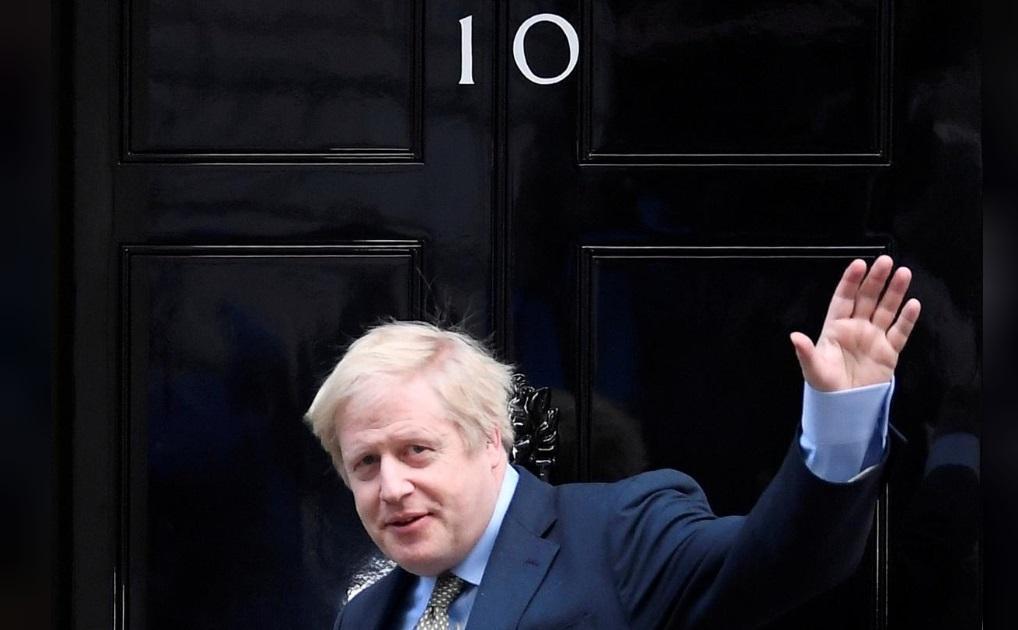
Britain was speeding towards Brexit on Dec. 13 after Prime Minister Boris Johnson won a resounding election victory, ending three years of uncertainty since Britons voted to leave the European Union.
Johnson has relentlessly pursued Brexit since he put himself forward as the face of the victorious “Leave” campaign in a 2016 referendum, and it represents Britain’s biggest geopolitical step since World War Two.
Though now free to realise his Brexit dream, Johnson faces the daunting task of negotiating trade deals around the world, not least with the EU itself, and of keeping a divided kingdom in one piece.
“We will get Brexit done on time by the 31st of January, no ifs, no buts, no maybes,” Johnson told cheering supporters as a grey dawn broke over London.
Overnight, results pouring in from the 650 parliamentary constituencies around the United Kingdom showed that Johnson’s Conservative Party had trounced its main opponent, winning 364 seats to the Labour Party’s 203.
German Chancellor Angela Merkel said many within the EU were relieved that Britain would now have a parliament with a clear majority, highlighting the frustration that European leaders have felt during three years of political logjam in London.
But she said it would be “very complicated” to complete talks on a new relationship between Britain and the EU within a planned transition period due to end in December 2020.
“We need to... decide already in June whether we want to extend the negotiation period (beyond December),” she told a news conference in Brussels, noting that Johnson has already said he does not want an extension.
UK: Tories secure majority as Corbyn says he won't lead Labour into next election

U.S. President Donald Trump was quick to congratulate Johnson.
“Britain and the United States will now be free to strike a massive new Trade Deal after BREXIT. This deal has the potential to be far bigger and more lucrative than any deal that could be made with the E.U.,” Trump wrote on Twitter “Celebrate Boris!”
Biggest win since Thatcher
The election result, a vindication of Johnson’s simple campaign message, “Get Brexit Done”, marked the biggest House of Commons majority for the Conservatives since Margaret Thatcher’s 1987 triumph.
Sterling jumped by 2.5 percent, its biggest rise in nearly three years, on the first signs of the scale of Johnson’s victory, before giving up some of those gains. Shares in companies that rely on the British economy soared.
“Business after business want an end to the uncertainty,” said finance minister Sajid Javid. “And already because of the election result, I know today, from this morning, there are investors that have decided to deploy money and invest money in the United Kingdom,” he added, declining to name them.
The Brexit issue has eroded traditional party loyalties, dividing the nation along new faultlines of urban vs rural, young vs old, and graduates vs non-graduates.
The Brexit effect was most starkly illustrated by the crumbling of Labour’s “Red Wall”, a rampart of working-class areas across northern and central England where most people had voted “Leave” in 2016.
Frustrated at the country’s failure to quit the EU since then, and at Labour’s equivocal stance on Brexit, large numbers of voters deserted the party and flocked to the Conservatives, leaving the Red Wall full of holes.
“Your hand may have quivered over the ballot paper before you put your cross in the Conservative box,” Johnson told those voters in his victory speech, acknowledging that their support for his party represented a political earthquake.
Johnson said he was “humbled” at having won their trust, a rare note of humility from a politician best known for his bombastic rhetoric and supreme self-belief.
Scotland rejects Brexit
But it was a very different picture in Scotland, where the anti-Brexit, pro-independence Scottish National Party (SNP) won 48 out of 59 seats by thrashing both the Conservatives and Labour.
“The people of Scotland have spoken. It is time now to decide our own future,” said Nicola Sturgeon, SNP leader and first minister of Scotland.
She said her semi-autonomous Scottish government would next week publish a detailed case for a transfer of power from London to Edinburgh that would allow her to hold another referendum on Scottish independence.
With Sturgeon emboldened and a strong performance at the polls in Northern Ireland by nationalists who want to join the Irish Republic, the integrity of the United Kingdom looks more precarious than it has for centuries.
Overall, the election results were most damaging for Labour and its veteran socialist leader Jeremy Corbyn, who announced he would step down after a “process of reflection”.
Once a fringe figure on Labour’s far left, Corbyn unexpectedly won the party leadership in 2015 on a wave of grassroots enthusiasm for his radical policies.
But voters unambiguously rejected his programme of nationalisations and colossal state spending, delivering Labour’s worst result since 1935.
The Corbyn camp said they were determined to stick to their socialist agenda, but they face a brutal battle against those in the party who want it to return to the centre ground it occupied under former prime minister Tony Blair.
It was also a bad night for the strongly anti-Brexit Liberal Democrats, the only party that proposed cancelling Brexit without holding a second referendum.
The plan appeared to backfire, with the party winning only 11 seats. Its leader, Jo Swinson, lost her Scottish seat to the SNP and promptly resigned.